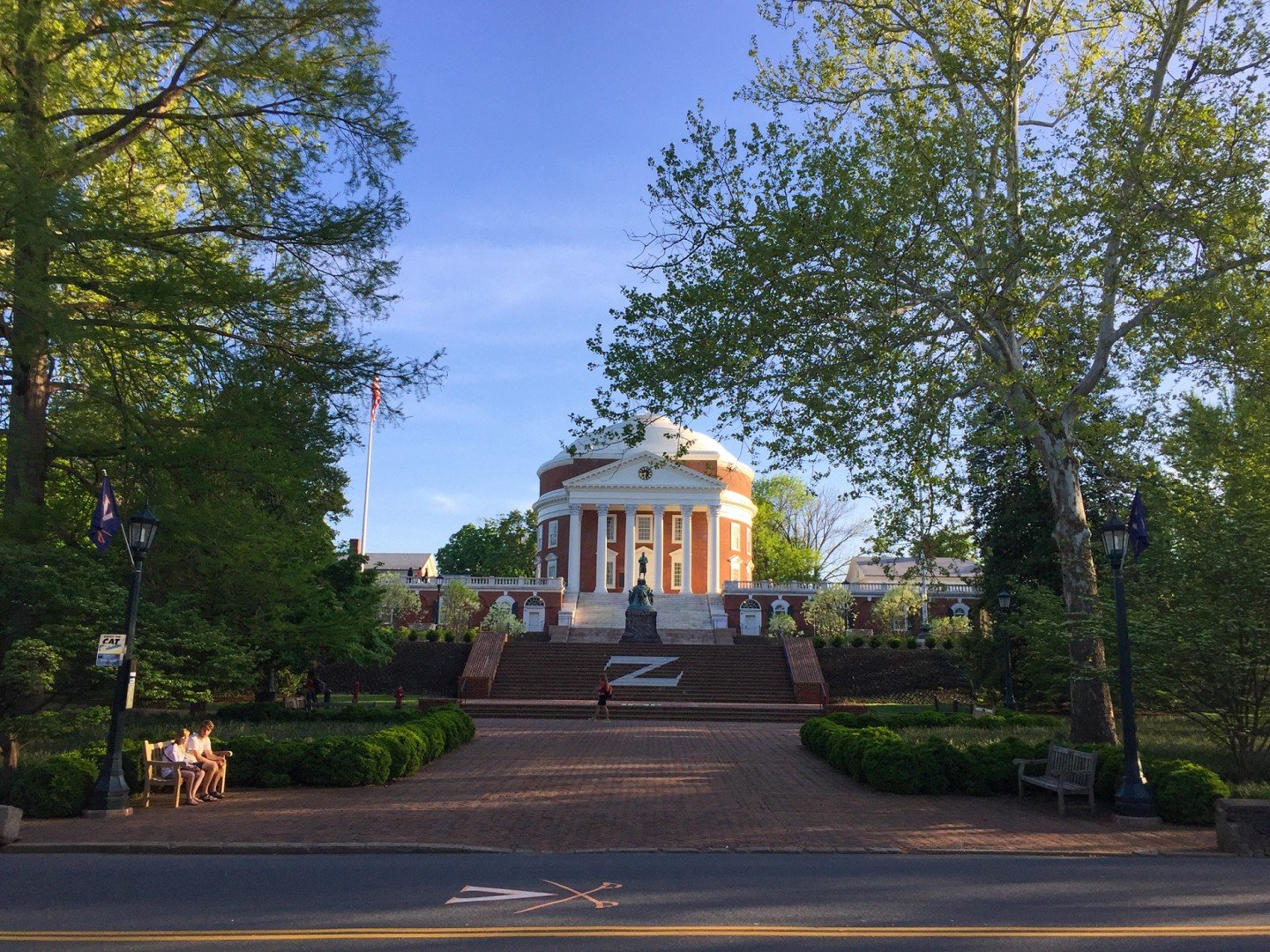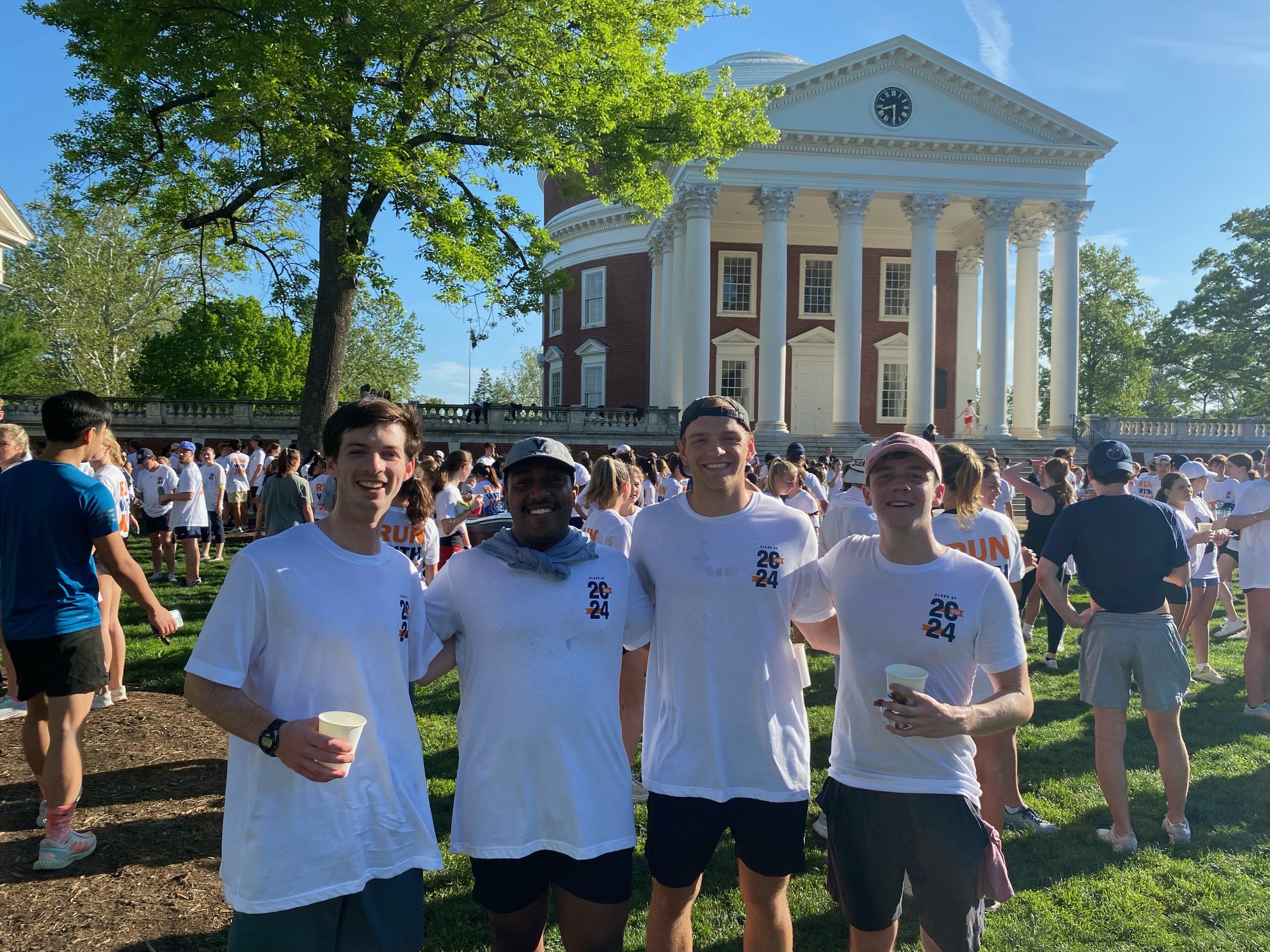Vintage Iced-Tea Recipe
Says Karen, “This iced tea tastes like home!”
Ingredients:
3 family sized tea bags
1 quart water
1 large 12 oz frozen lemonade concentrate
8-12 sprigs of mint
1 cup sugar
Instructions:
Bring water to a boil & remove from heat.
Add teabags & mint & let steep for 20 min
Remove teabags & mint, Add lemonade concentrate, sugar & enough water to make 1 gallon
Practices of Wonder | Escape to the Beach
Escape To the Beach: Dorothy Day (1897-1980)
Adapted from Wake Up to Wonder: 22 Invitations to Amazement in the Everyday
Dorothy was a New Yorker born and bred, an urban dweller from her early bohemian days in Greenwich Village to her elder years on the gritty Lower East Side. In the shadow of glittering skyscrapers, corporate wealth, and global power, Dorothy Day’s New York was one of soup kitchens, picket lines, political protests, jail time, and communal living.
No worldly ambition drew Dorothy to the city; rather, it was great love that kept her there. “I do not know how to love God except by loving the poor. I do not know how to serve God except by serving the poor,” this woman, at once politically radical and theologically orthodox, remarked. “Here, within this great city of nine million people, we must, in this neighborhood, on this street, in this parish, regain a sense of community which is the basis for peace in the world.”
Dorothy Day lived her convictions to the end of her life at age eighty-three. Yet from her spartan combination bedroom-office in the noisy, crowded Catholic Worker Maryhouse among the tenements of Lower Manhattan, she wrote, “I am restless for the beach, not too far away, where I can enjoy the beauties of sunrise over the bay and the sunset.” The same Dorothy who labored tirelessly on behalf of the oppressed, who went to prison to oppose war, never stopped longing to be by the bay. Whenever she could make an escape, Dorothy fled to the respite of a “tin roofed fisherman’s shack” perched on Raritan Bay, the rough bungalow she had purchased in the 1920s. “One of the joys of Staten Island is that one can get down there after a grueling day in New York, and for thirty-five cents find oneself on a deserted beach,” she explained.
Dorothy Day’s Catholic Worker comrades sometimes heard her quote St. Teresa of Avila: “Life is but a night spent in an uncomfortable inn, crowded together with other wayfarers.” Still, they knew her to be a part-time hermit whose exhausting work and life compelled her to slip away to the beach, for space to be by herself, to think and pray and write. One young Staten Island neighbor remembers being told, “Dorothy is here this weekend. If you are playing house, keep off her porch.” For those rare restorative days, Dorothy was to be left alone to savor a space all her own, a rickety beach chair, a salty breeze.
TRY THIS
Reflect upon Dorothy Day’s words:“One of the joys of Staten Island is that one can get down there after a grueling day in New York, and for thirty-five cents find oneself on a deserted beach.”
Are you feeling the pressure of a tough day? A fisherman’s shack may not be waiting for you, but think about a getaway within reach, somewhere you could go with your equivalent of thirty-five cents: a bike ride, a walk, or a short drive away. It might be a public park, a hiking path, a walking trail, a hidden garden, a pond—a spot where nature offers some quiet and beauty.
Can you make a plan to go there today or in the next day or two?
What tools, toys, or props will you take with you?
What sights or experiences do you expect to find there?
As you picture your place, write a few words about it, beginning with Dorothy’s words: “One of the joys of [this place] is . . .”
Buck's Bend Berry Spoon Cake
I know it’s July when the blackberries on our meadow walk are ready for picking. For about a month, we gorge ourselves with its purple-black jeweled flesh. The picking experience becomes a form of meditation: there are thorns, ouch!, but that constant danger steadies my hand and my breathing and I become utterly focused for 20-30 minutes on snaking my fingers just so through the jagged maze to snag that perfect, gleaming one.
Usually, these beauties go straight into our mouths for the next day or perhaps in a bowl with a dollop of yogurt and a drizzle of maple syrup.
But, when you’ve had your fill of them straight, you might be inclined to try something slightly different, but still ridiculously simple and sublime. Any berry will do that you happen to have in abundance. Peaches would be equally amazing.
Inspired & adapted from: New York Times Cooking & King Arthur Flour Baking.
-Christy Yates, Associate Director
Bucks Bend Berry Spoon Cake
Ingredients:
2-3 cups fresh berries or other fresh fruit
1/2 cup of butter or coconut oil (melted)
2 T maple syrup
lemon zest & juice
1/2 cup all purpose flour (or GF flour)
1/2 cup almond flour
1/3 cup sugar
1 teaspoon baking powder
1/2 teaspoon table salt
1/4 cup milk, whole or alternative milk
1 large egg (optional)
Instructions:
1) Preheat oven to 400. Stick 10’’ cast iron skillet (or similar dish) with butter/oil into oven to melt.
2) Using your hands or the back of a fork, mash the fruit to release all its juices and stir in the maple syrup, some lemon zest and squeeze of lemon juice. Set aside.
3) To make the batter: In a large bowl, whisk together the sugar, flours, baking powder, and salt.
4) In a small bowl or liquid measuring cup, whisk together the milk & egg (if using).
5) Once the butter/oil has melted, swirl it around in the baking dish so it coats the sides, then pour it into the flour mixture and stir with a spatula to thoroughly combine.
6) Add the milk mixture and whisk well to incorporate.
7) Immediately transfer the batter to the warm buttered baking dish, then gently spoon the macerated fruit and its juice over the top. The fruit mixture should cover the batter almost entirely with a few bare spots peeking through.
8) To bake the cake: Bake until golden brown and puffed, 30 to 35 minutes.
9) Remove from the oven and serve warm. Top with whipped cream, ice cream or yogurt on each serving, if desired.
10) Storage information: Refrigerate any leftover spoon cake, covered, for up to four days.
Spoon cake with freshly picked blackberries and local peaches.
The Best of TH! Watch the Video.
Enjoy these glimpses into our community of faith, thought and life!
Smart Stewardship: Platinum Transparency 2024
Did you know TH holds the highest level of non-profit accountability? The Platinum Seal of Transparency indicates that we share clear and important information with the public about our goals, strategies, capabilities, achievements and progress indicators that highlight the difference we make in the world. Donate with confidence.
A new Give.org report shows that a nonprofit’s accomplishments are the number one factor in establishing donor trust. According to Give.org’s report, the top reasons inspiring trust are the charity's accomplishments, reputation, and financials.
Learn more about Non-Profit Transparency and the Guidestar badge.
Smart Stewardship: A Spirituality of Tithing
“The point is this: whoever sows sparingly will also reap sparingly, and whoever sows bountifully will also reap bountifully. Each one must give as he has decided in his heart, not reluctantly or under compulsion, for God loves a cheerful giver.” 2 Corinthians 9:6-7
What does it look like to live a life of generosity and trust in God’s provision? How can practicing tithing be seen as a part of our spiritual formation? Dr. Colene Trent, a professor of Economics, helps us unpack these questions in her helpful article: Tithing: An Expression of our Faith.
“I am compelled to believe that we should give generously and joyfully back to God. Rather than seeing tithing as a rule to be followed, we should approach it as a way of furthering God’s kingdom and as a way of acknowledging that God is the giver of every good and perfect gift.”
June Prayers | For Rest
“In peace I will both lie down and sleep; for you alone, O Lord, make me dwell in safety.”
DEAR FRIENDS,
What a gift to have seasons of rest in anticipation of our Great Rest. The early church even saw our sleep each night as a dress rehearsal for our own deaths which is echoed in some of the compline prayers handed down to us: “now I lay me down to sleep, I pray the Lord my soul to keep…”
Whether we’ve practiced this small daily surrender or not, for most of us, summer provides an opportunity to remember that we are more than just worker-bees. We exist in relationship to our Creator, to others and to this created world. May this month offer you moments to remember from Whom you came and to Whom you will return; may you experience the childlike rest that comes from contemplating such a holy mystery.
To Live in the Mercy of God
BY DENISE LEVERTOV
To lie back under the tallest
oldest trees. How far the stems
rise, rise
before ribs of shelter
open!
To live in the mercy of God. The complete
sentence too adequate, has no give.
Awe, not comfort. Stone, elbows of
stony wood beneath lenient
moss bed.
And awe suddenly
passing beyond itself. Becomes
a form of comfort.
Becomes the steady
air you glide on, arms
stretched like the wings of flying foxes.
To hear the multiple silence
of trees, the rainy
forest depths of their listening.
To float, upheld,
as salt water
would hold you,
once you dared.
.
To live in the mercy of God.
To feel vibrate the enraptured
waterfall flinging itself
unabating down and down
to clenched fists of rock.
Swiftness of plunge,
hour after year after century,
O or Ah
uninterrupted, voice
many-stranded.
To breathe
spray. The smoke of it.
Arcs
of steelwhite foam, glissades
of fugitive jade barely perceptible. Such passion—
rage or joy?
Thus, not mild, not temperate,
God’s love for the world. Vast
flood of mercy
flung on resistance.
Smart Stewardship: Stocks & Securities
Tax-efficient gifting with appreciated assets | Want to be smarter with your charitable giving? Consider this.
Adapted from Fidelity Wealth Management’s white paper. ASK YOUR FINANCIAL ADVISOR ABOUT WHAT IS BEST FOR YOU!
Key takeaways
Gifting assets, rather than selling them and donating the after-tax assets, can maximize your gift and provide a larger charitable deduction.
A donor-advised fund is an efficient way to manage your non-cash giving.
Whether you’re a seasoned philanthropist or you just started giving back, you have an opportunity to make an impact with smarter charitable giving—and it's as easy as picking the right asset.
When it comes time to support Theological Horizons, many donors instinctively reach for their checkbook or cash. Instead, you can potentially maximize the impact of your giving for both you and the ministry when you consider giving often overlooked non-cash assets, such as appreciated stocks in your portfolio, privately held business interests, or even cryptocurrency.
Because long-term appreciated holdings or investments may be prime assets for tax-efficient giving, exploring this strategy has the power to potentially take your philanthropy—and your overall financial plan—to the next level.
Give more than just after-tax proceeds
What if you could maximize your charitable impact and tax savings at the same time, all by using an asset that will give you a much bigger bang for your buck? Consider this hypothetical example. As a charitably minded individual, say you make a $5,000 cash gift to your favorite charity. While you usually just write a check, you also hold stock with a current fair market value of $5,000 that you purchased at least one year ago for $2,500. Perhaps your first thought is to sell the long-term appreciated stock, pay the capital gains tax, and then donate the net cash. Assuming a 15% capital gains rate, you’d only have $4,625 in net proceeds to donate, compared to the stock’s current fair market value of $5,000 or your $5,000 check.
This chart demonstrates how donating $5,000 in securities directly to Theological Horizons instead of selling the securities and donating the after-tax proceeds could allow for an additional $375 to be dedicated to the charity. In this example, contributing the stock directly to the charity is a more effective donation than just giving the after-sale proceeds: You have more money to give to support Theological Horizons’ mission.
Maximize both your tax benefits and charitable impact
Donating your stock directly to Theological Horizons also unlocks 2 key tax benefits for you:
It may eliminate the capital gains tax you are facing on the sale of the stock &
the stock donation is tax deductible at the current fair market value
As a result, the most long-term appreciated stock in your portfolio is often the best to donate because it offers the greatest potential tax benefit.You could also maximize your charitable gift. Because Theological Horizons does not need to pay the capital gains tax, it can now sell the stock you donated for its full, current fair market value and keep 100% of the proceeds – while you get the tax benefits.
Apply the strategy to other appreciated assets
When considering which asset to give, you can look beyond the traditional publicly traded securities in your portfolio. Vested shares in your company stock derived from an equity compensation program could be a powerful source of charitable funding. Long-term appreciated private company C- or S-corp stock, private equity partnership interests, or Bitcoin and other cryptocurrencies can also help you realize the same tax benefits. Work with your financial advisor to navigate how to make the most effective and impactful gift.
Make your gifts hassle-free
Here’s one option to explore. When considering making this type of donation, many smart donors use a donor-advised fund (DAF) program to manage their complex contribution from end to end, allow them to support multiple charities from a single tax-advantaged charitable gift and keep recordkeeping and administration simple throughout the year.
Here’s the bottom line: Tap into smarter charitable giving with assets beyond cash, and you may make more of a difference for Theological Horizons and for other causes you care most about!
Ready to donate appreciated assets directly to Theological Horizons?
We have simple instructions to share with you.
Reach out to us at info@theologicalhorizons.org
THANK YOU!
As an independent Christian ministry, Theological Horizons is completely funded by donors just like you: giving partners who share our vision. We depend upon your support and carefully steward your contributions.
Theological Horizons is a 501(c)(3) not for profit charitable organization, tax exempt #581594037.
Your contributions are tax deductible. www.theologicalhorizons.org/giving
Resources
https://sagemintwealth.com/the-complete-guide-to-donating-stock-to-charity/
https://www.charitynavigator.org/donor-basics/other-ways-to-give/donating-stocks/
https://giving.duke.edu/blueprints/3-things-to-know-about-donating-stock-to-a-nonprofit/
https://www.fidelity.com/learning-center/wealth-management-insights/gifting-appreciated-assets
Smart Stewardship: UVA & TH Partner Up
Love UVA? Love Theological Horizons? Give to both at the same time when you name “Theological Horizons” in any contribution you make to the UVA Fund!
Whenever you make a class gift, honor a grad, fulfill an alumni pledge, or contribute an everyday gift, simply designate it to Theological Horizons (UVA Fund acct #FAA288). All of your dollars will come over to Theological Horizons—and you’ll support a ministry that builds up the University community. How amazing is that?
Your generosity strengthens students’ spiritual experience, serves believers and seekers of all ages, and builds a faith friendly community at the University of Virginia.
Go Hoos! Here’s how:
Give online through the TH UVA Fund giving page (by credit card, Venmo, Google Pay and Paypal
Write a check to “The UVA Fund” with #FAA288 in the memo line and mail it to
UVa Fund, PO Box 400314, Charlottesville, VA 22904
Have a question? We’re here to help: info@theologicalhorizons.org
Scoper Lecture '24 Videos & Next Steps!
Dear friends.
We are basking in the light of being together, making new connections, and having good though challenging conversations. We had a full house at Old Cabell Hall to listen to David Brooks in conversation with Melody Barnes and then several hundred of you joined us afterward in the amphitheater to sit down, eat pie and listen to one another. See below for videos, photos & next steps!
Know Better: Deepening the Bonds of Communal Life
with David Brooks, in conversation with Melody Barnes.
Surprised by Stories: How Movies Keep us Human
A filmmaker conversation with Nicholas Ma and Matt Weber.
Cultivating Curiosity: The Power of Storytelling to Mediate Messy Conversations
A panel discussion moderated by Anne Snyder Brooks, featuring Jocelyn Diaz, Ian Solomon, Gayle Jessup White and Greg Kahlil.
SERVE & LEARN
Over the years, we have developed trusted relationships with many in our community doing the daily good and hard work of seeing and caring for those often overlooked. Many of these organizations host our Perkins Fellows who serve & learn weekly. Click on the button below if you’d like to get proximate and serve or otherwise support these wonderful organizations.
HOST A WELCOME TABLE
Did you experience warm hospitality while eating pie at the Welcome Table reception? We’d love for this to inspire more welcome tables throughout our city and beyond. Click on the button below if you’d like us to send you a Welcome Table Conversations Guide as well as table question prompts so you can host your own welcome table.
SUPPORT TH TODAY
As we work to support Christians and seekers in the heart of academia and beyond, we’d love your partnership! Donate today, no gift is too small, and your money will be doubled as we work to continue this ministry of welcome.
SHARE YOUR FEEDBACK!
We’d love to hear how you experienced the Scoper Lecture, Welcome Table Reception and any companion events. Take a moment to fill out our anonymous survey below.
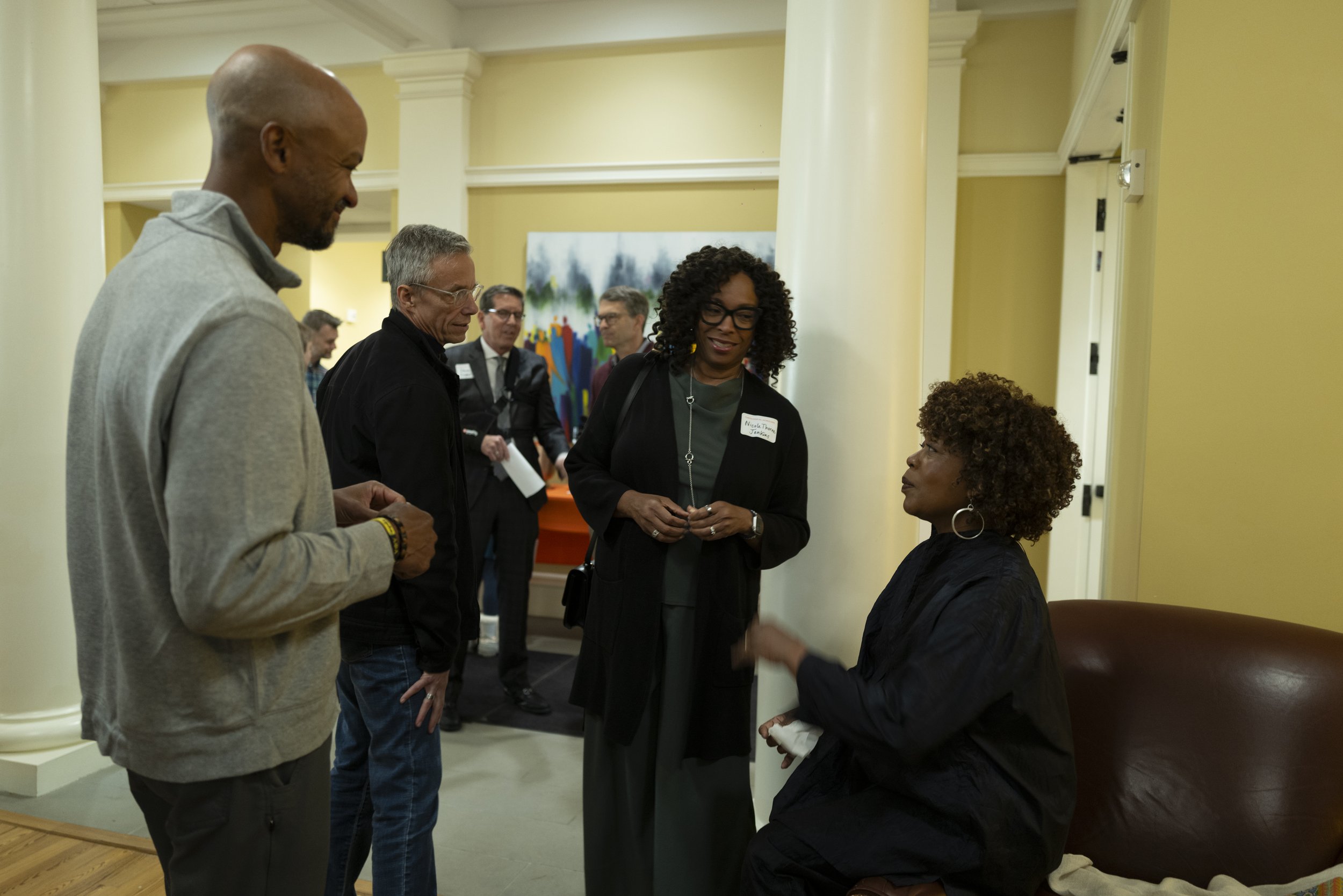
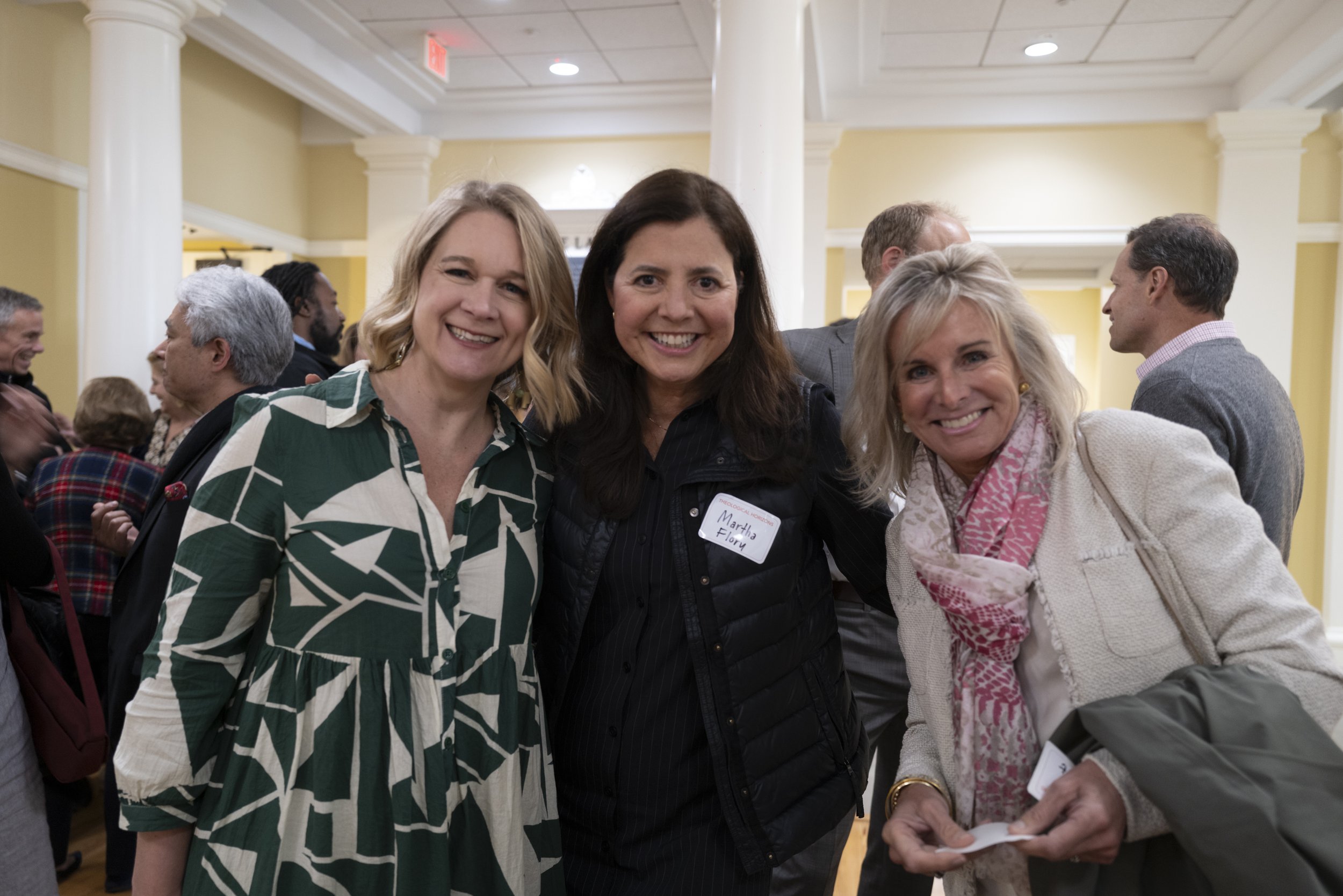
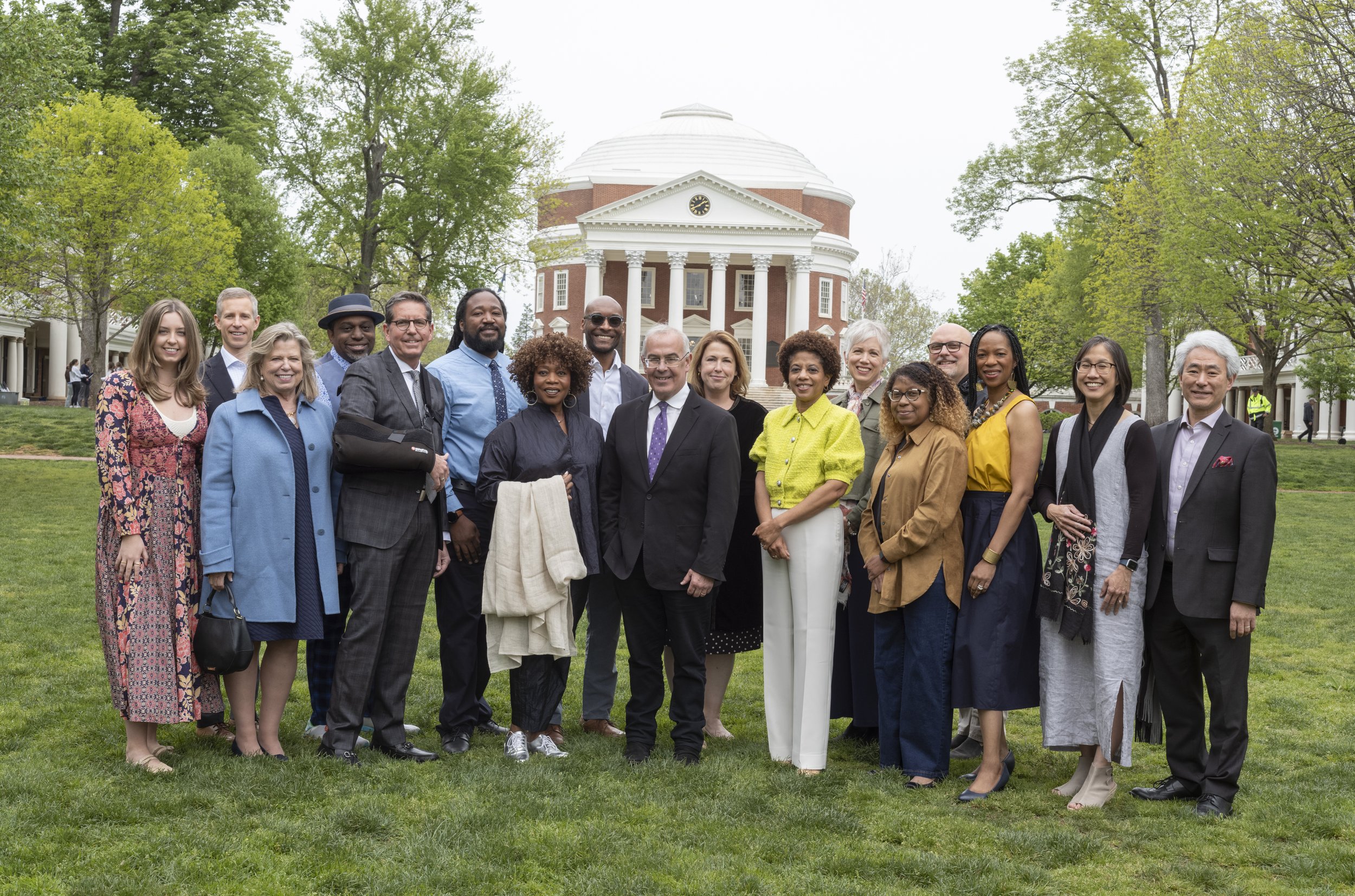
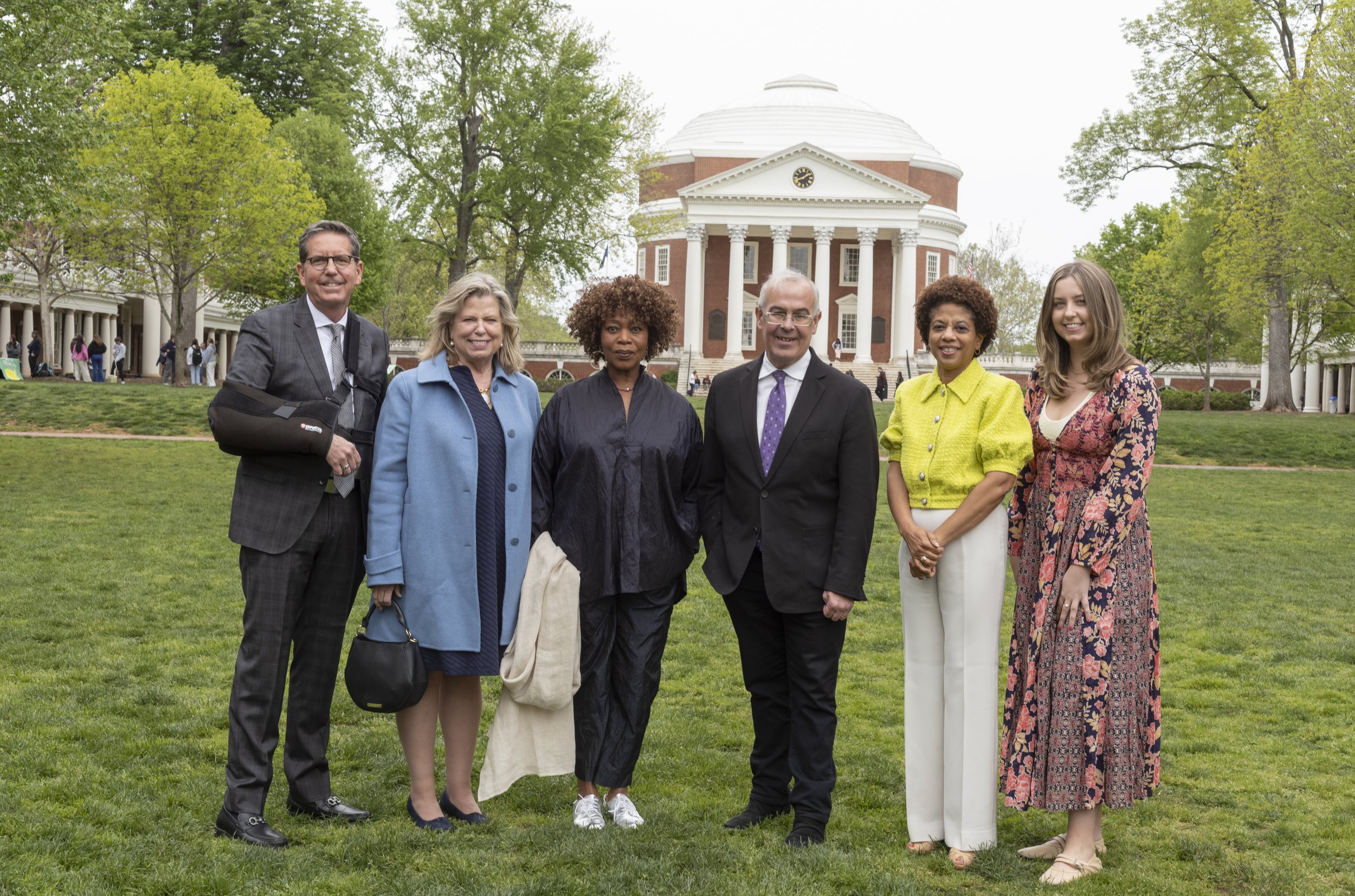
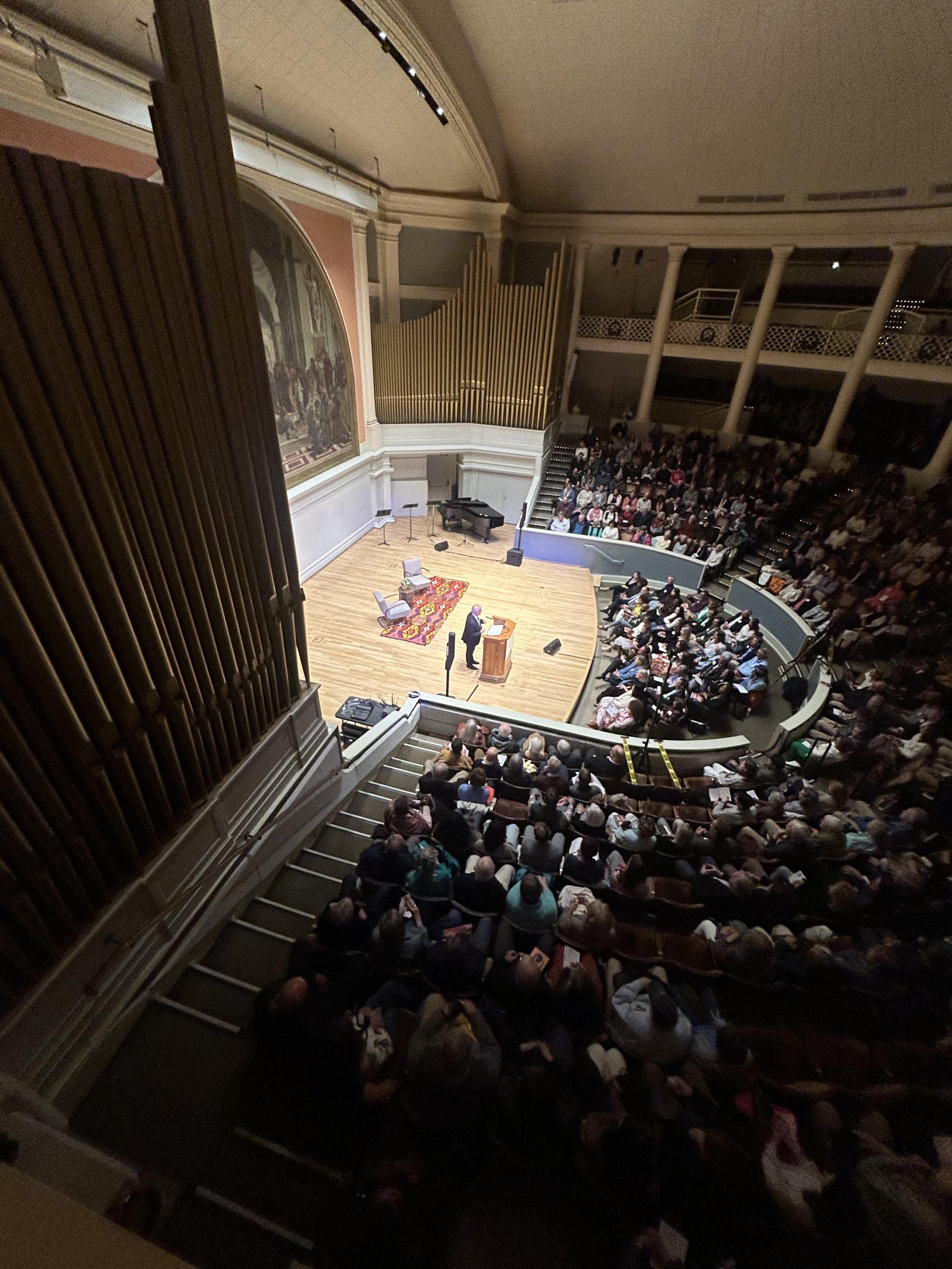
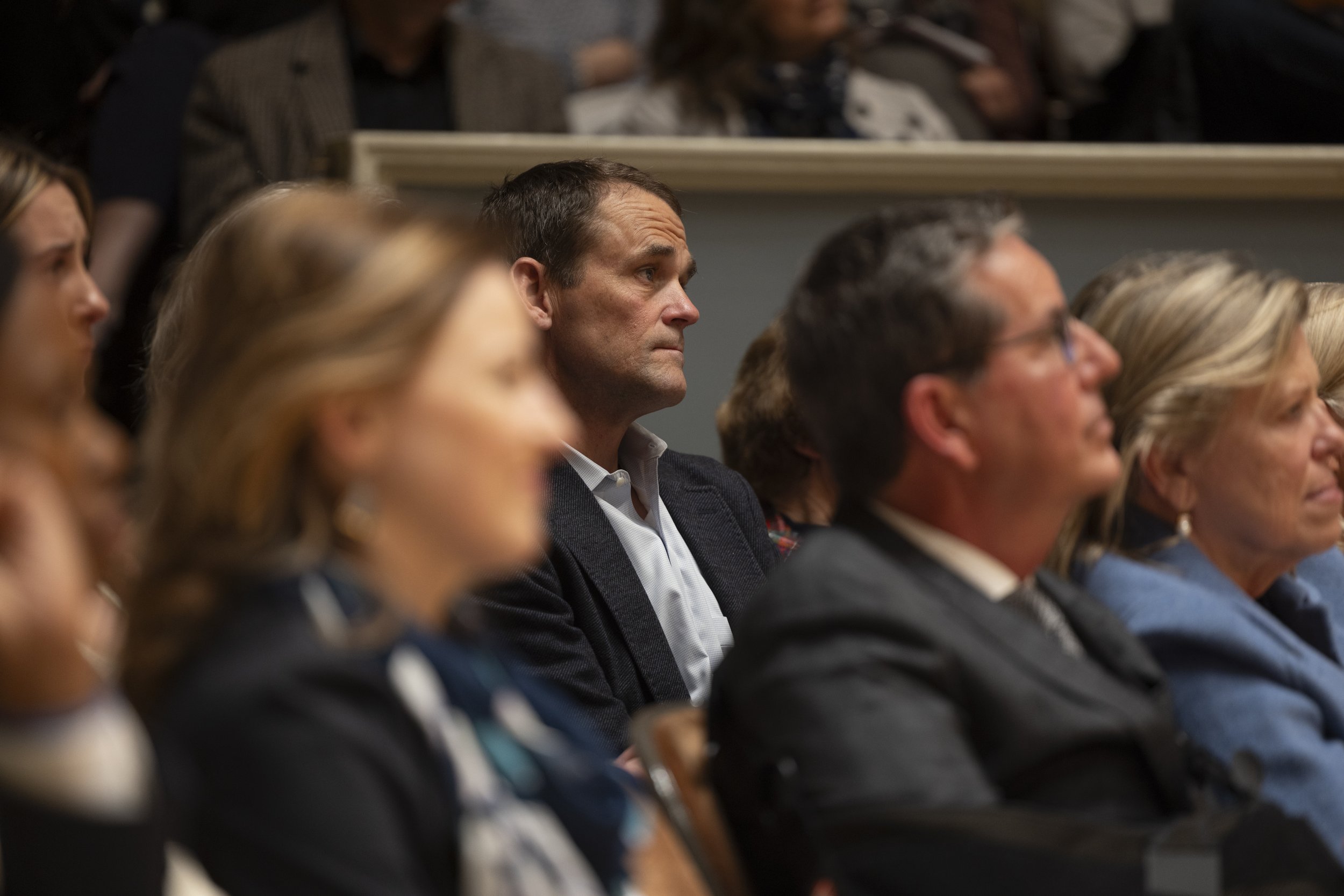
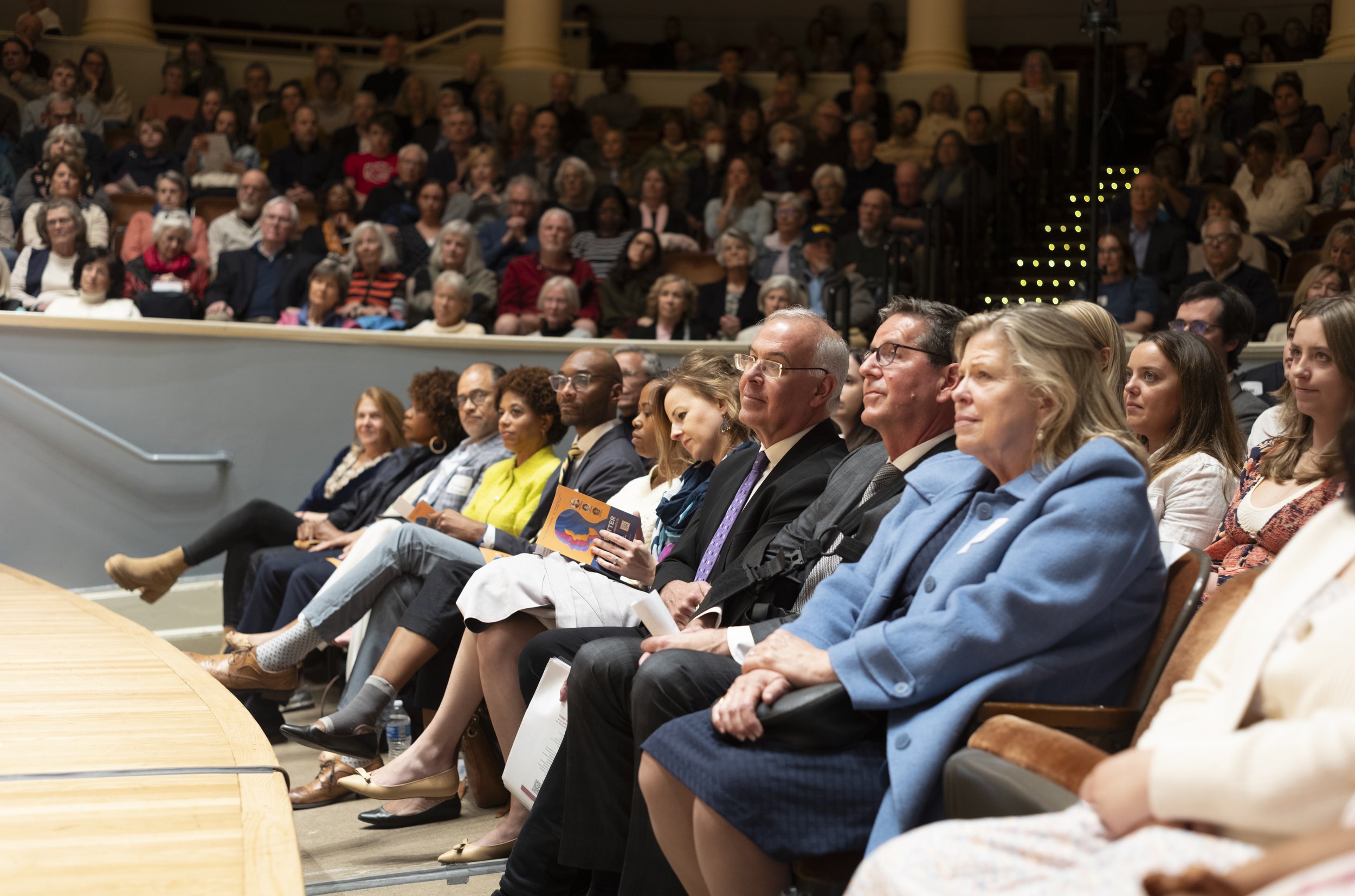
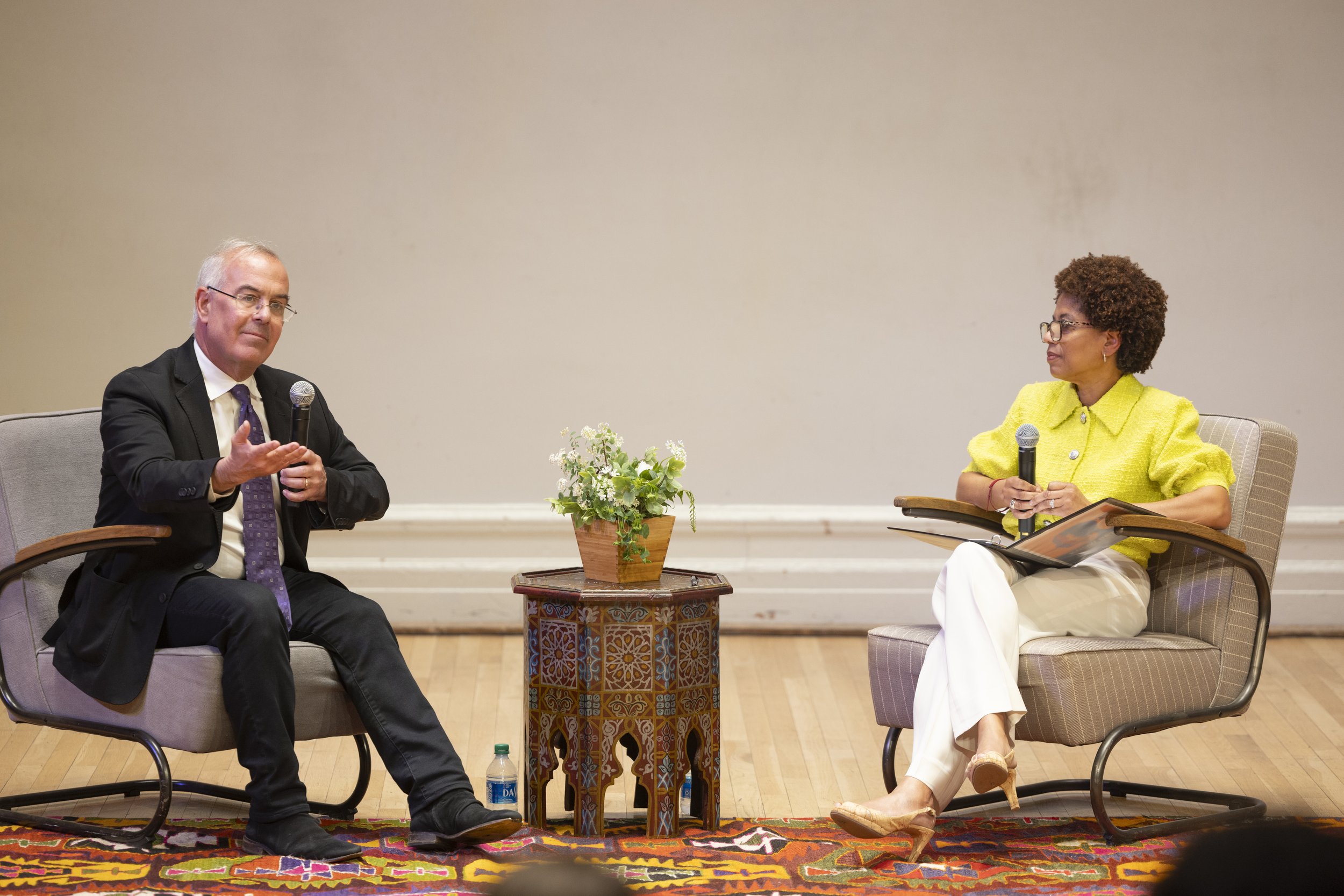
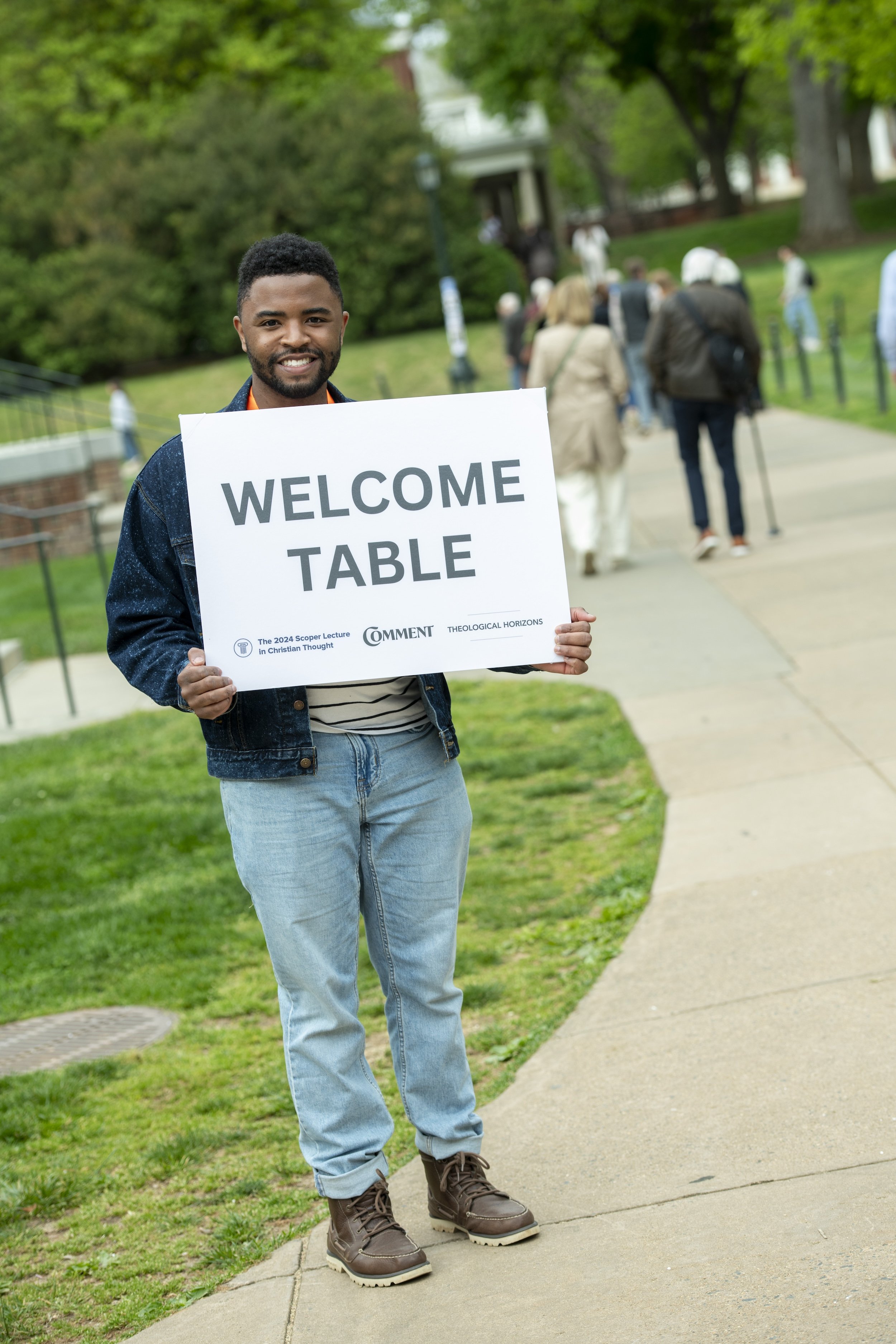
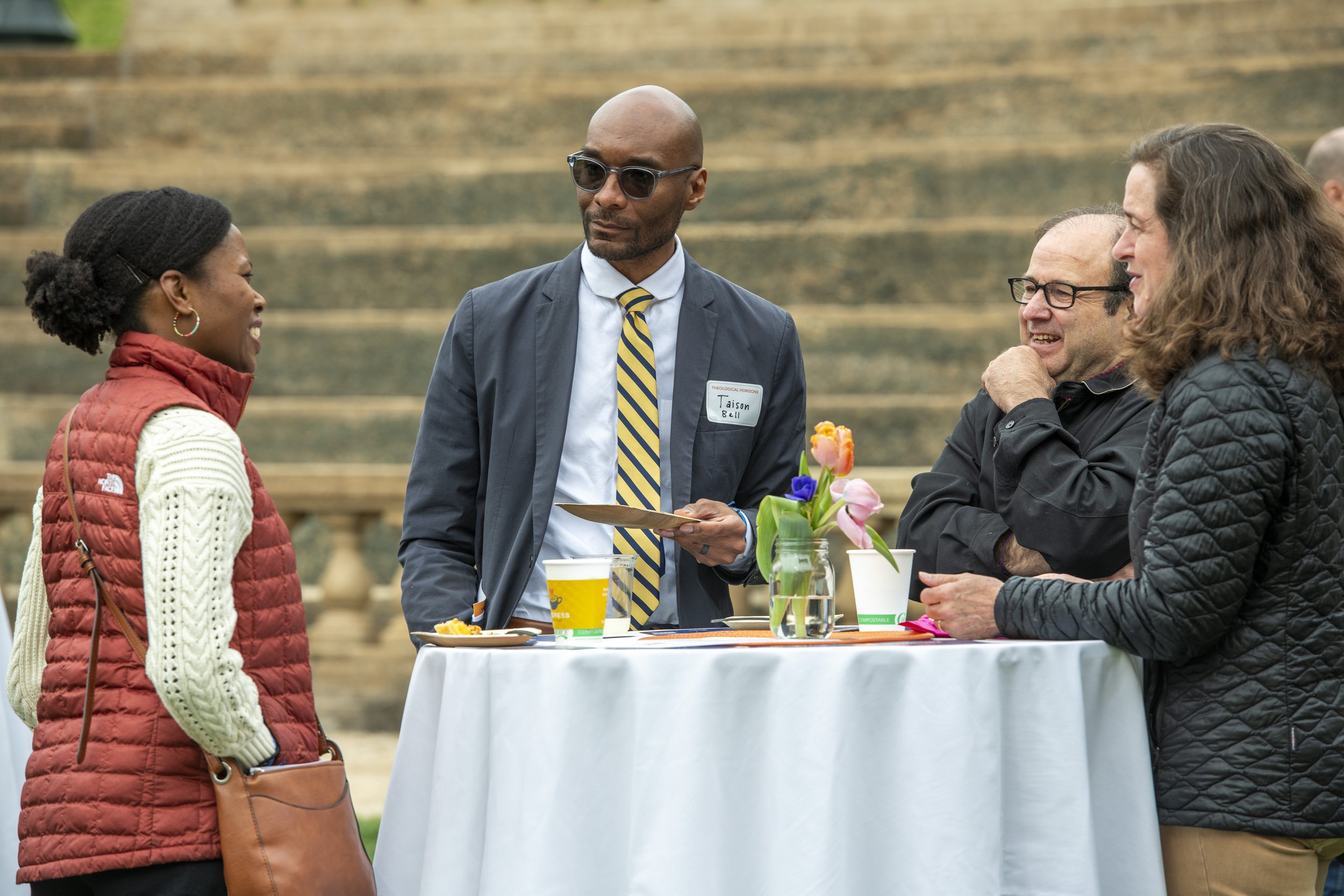
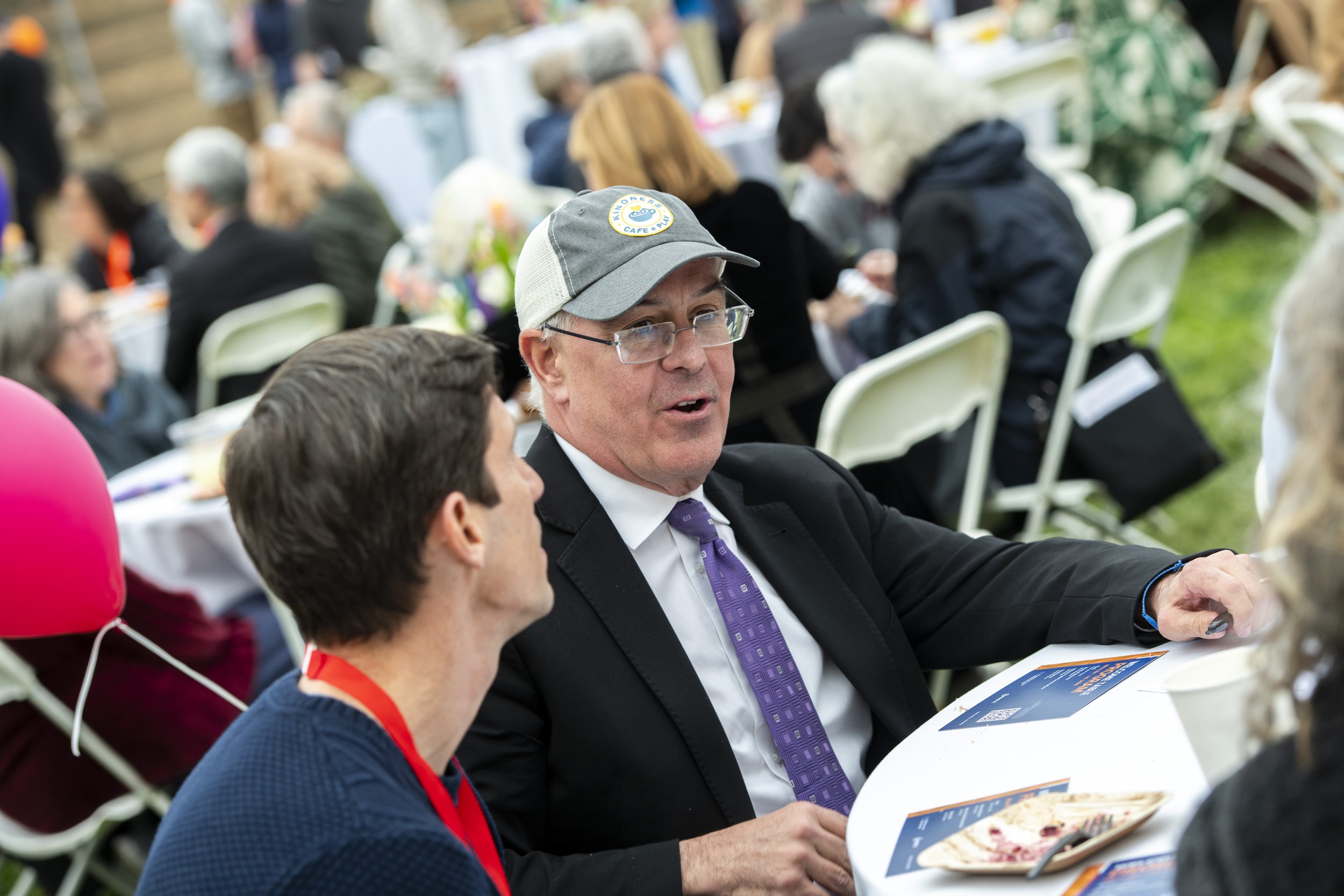
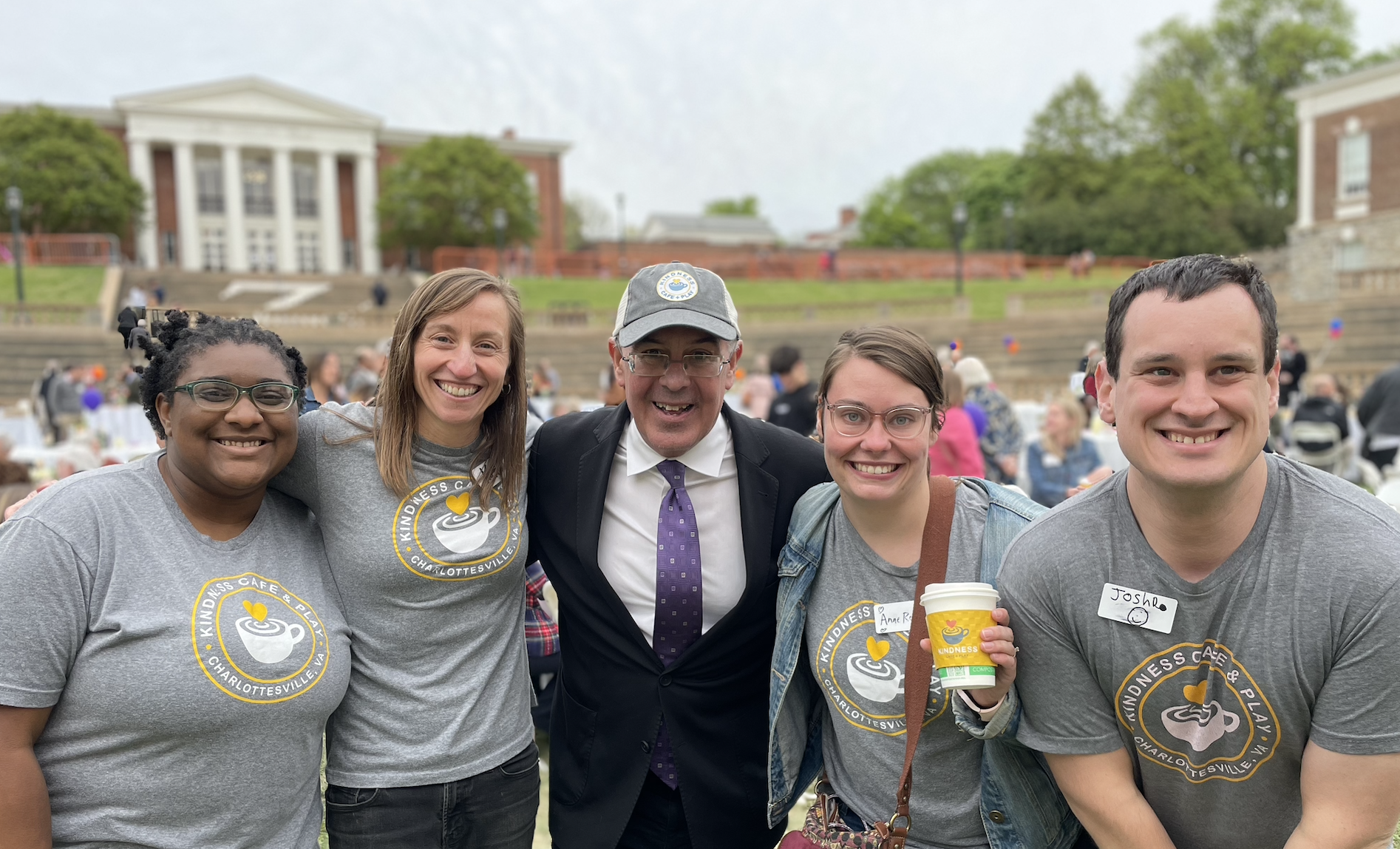
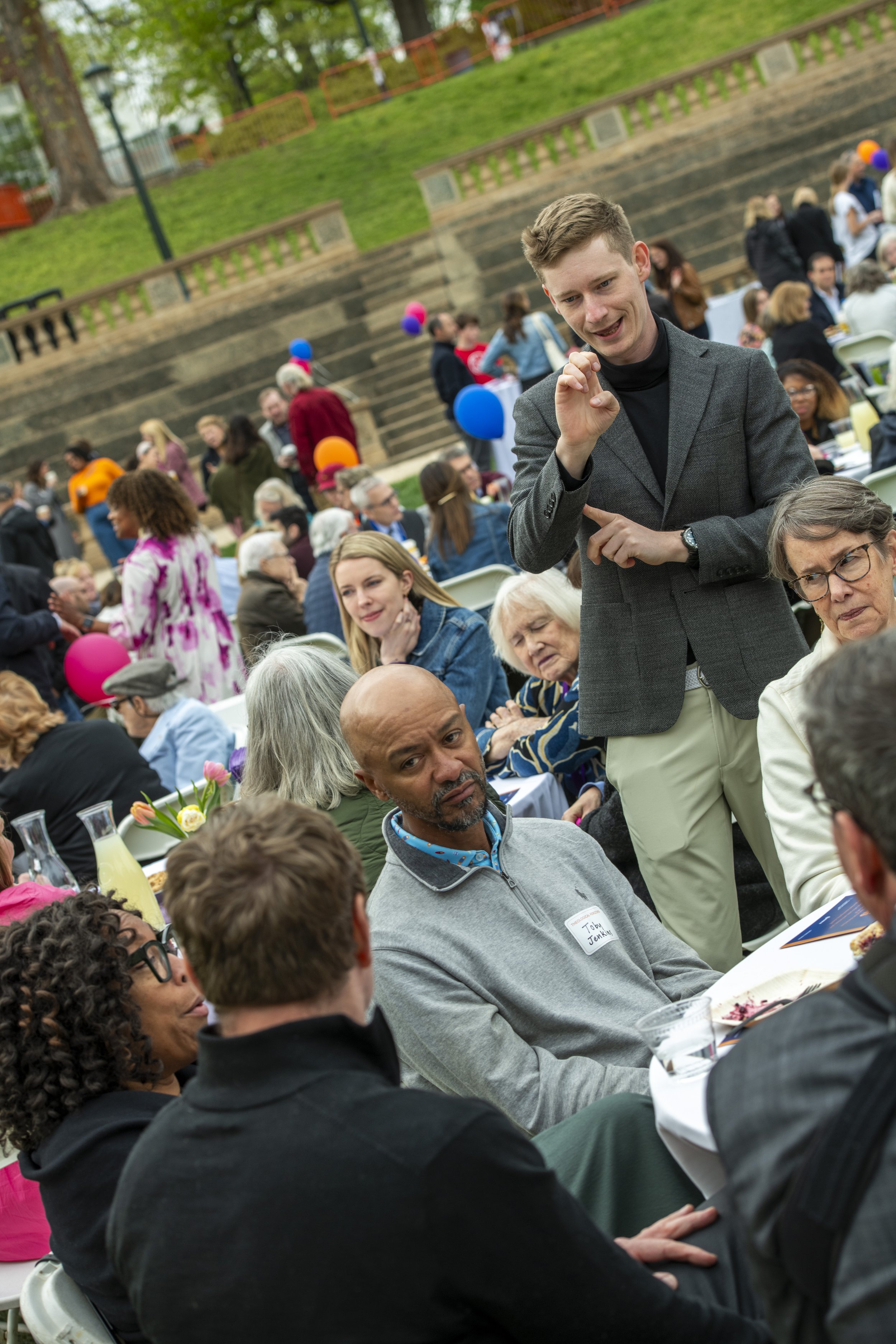
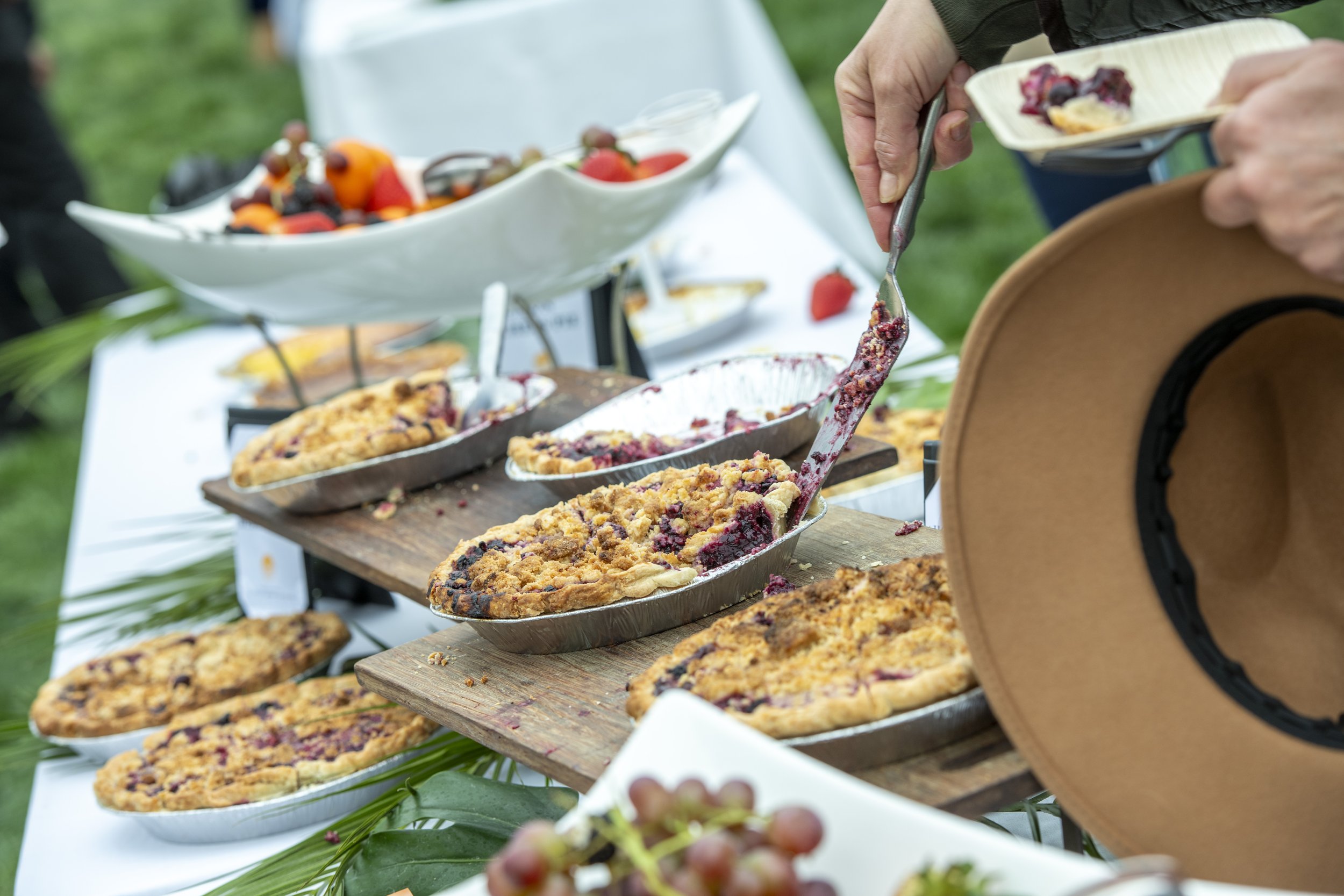
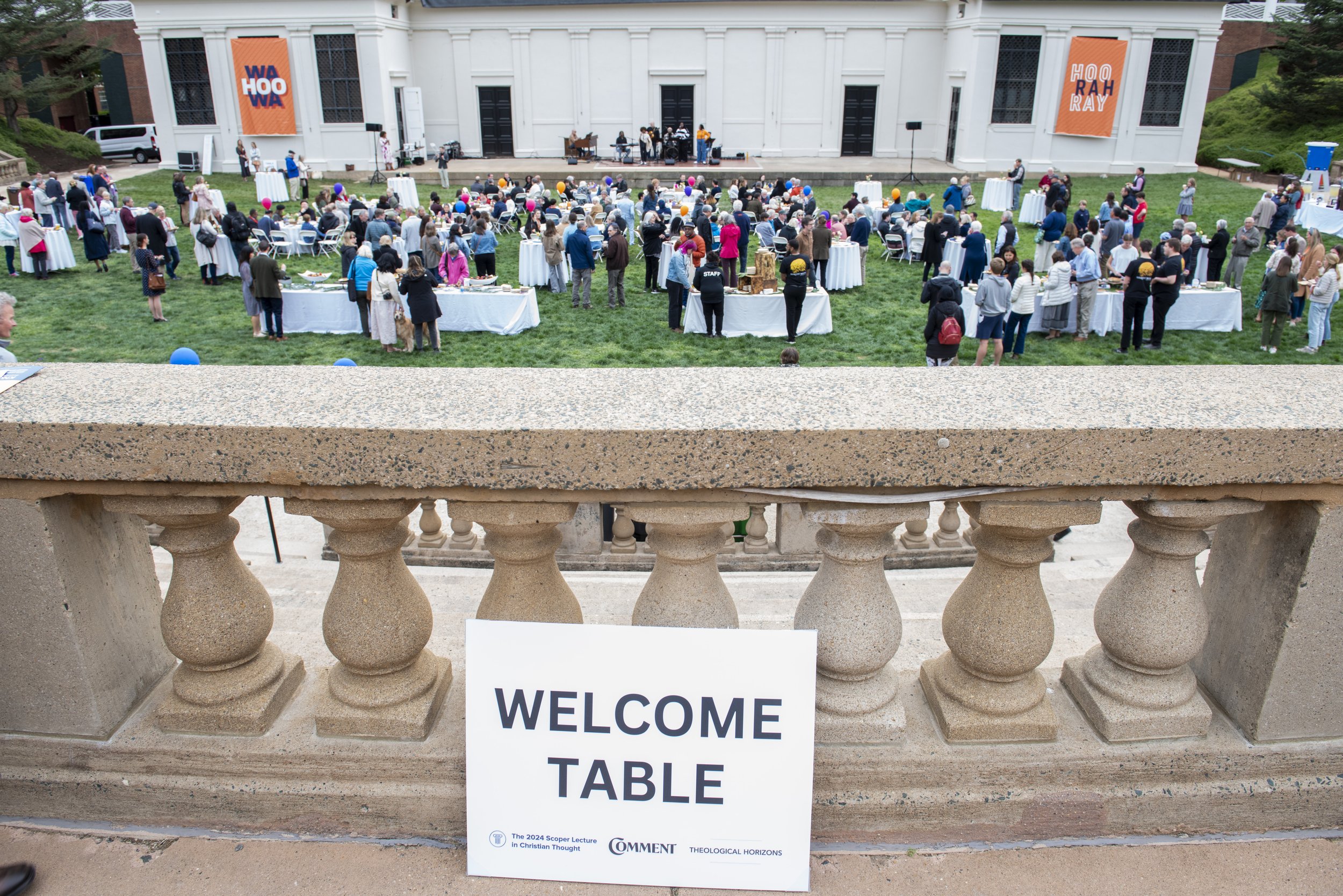
Rooted in Community | Perkins Fellow Lanie Moore '25
Seated on the hearth in Christy Yates’s living room one Sunday this spring, I read aloud a poem that I had hastily typed into the Notes app on my phone. I was sitting with the other Perkins Fellows from the 2023-2024 school year, sharing reflection statements about our faith journeys and our community partnerships. My reflection statement reads:
I have learned
That I’m still learning.
That a broken place can be full of joy.
That I can grieve and yet know that God is good.
That I can become the mycorrhizae of my community.
These past two semesters, I have served at The Haven, a day shelter for unhoused individuals located near the Downtown Mall. My Saturday mornings at the Haven have challenged and humbled me. Sometimes, I think that I can sense a palpable spirit of grief resting on the shelter, grief over what once was and what might have been. Other times, it’s a spirit of anger, directed toward unjust and uncaring systems of racism and classism. Driving home after my shifts, I mourn the stories of shattered families and relationships and livelihoods that I have encountered there. As I grieve the deep wounds of personal, generational, and systematic trauma, I cling tightly to my deep conviction that I serve a good God who grieves alongside me.
At the same time, mornings that I spend at the Haven are some of my favorites. I enjoy the routine that I’ve created for myself, reorganizing the inventory of clothing and toiletries, sorting the mail, and wiping down tables. I have become friends with the Saturday staff, guests, and other volunteers, and there is often something to laugh about.
Being made in the image of God means that the capacity for joy exists in every place that humans reside, and the Haven is no exception. My image of humanity, in all of its beauty and sinfulness and diversity, is becoming more complete each time I descend into the church basement-turned-shelter.
As I have served at the Haven and witnessed other Perkins fellows serving their community partners, I have decided that the soul of community-minded servanthood mirrors the role of mycorrhizae in ecosystems. The term “mycorrhiza” refers to the symbiotic relationship between hyphae, or the root-like projections of fungi, and the roots of plants. The hyphae of mycorrhizal fungi will reach out to nearby roots, wrapping them in a filamentous, subterranean hug. These mycorrhizal hug extensions increase the surface area of the roots and allow the plant to increase its mineral and water intake. In return, the photosynthesizing plant provides the fungus with increased nutrients.
Like mycorrhizae, I would like to extend my arms and heart to the strong, pre-existing networks of my community, wrap around them, and strengthen them further. I can help to draw in the minerals of excitement, kindness, and time to my community partner, and in exchange, I feel confident that I will be bolstered by the nutrients of laughter, joyous interactions, and community members’ wisdom.
And of course, I am still learning.
photo: Perkins Fellows out at Buck’s Bend for their final gathering. Lanie is the third from the left.
My Joy & My Delight | Horizons Fellow Ashley Prillerman '24
To know God and trust in His plans. To seek the place where He dwells and make a place for Him in my life. To make Him my joy and my delight.
This statement stems from Psalm 43:3-4:
“Send me your light and faithful love, let them lead me; let them bring me to your holy mountain, to the place where you dwell. Then I will go before the altar of God, to God my joy and my delight.”
I have been meditating on this Psalm for a couple weeks, thinking about how it reflects my relationship with God. It recounts moments of blessing from God while pursuing a desire to be closer to Him. It shows admiration and devotion to Him as I seek His glory before the altar. It desires to make Him my joy and my delight. So what if my relationship with God? A mere following of His commands, an adherence to His Word? I think a relationship confined to that lacks love. God commands us before all else “Love the Lord your God”. To love Him leads to delight in His commands. To love Him means to delight in His wonder. To love Him means to delight in His love for me.
Ashley Prillerman was a Horizons Fellow ‘23-’24.
Forlorn Beauty | Perkins Fellow Lauren Campbell '24
In this world of forlorn beauty, may I seek the Creator, love His creation, and listen to His creatures. Always abiding in grace and Kingdom courage as I learn and unlearn.
As I reflect on my time with Perkins Fellows, I am encouraged by the questions, curiosities, service, truth, and community we pursued together. I am grateful for the opportunity to discuss hard social issues in a space where Christ is proclaimed and biblical justice is sought. I now have such a richer understanding of how Jesus’s ministry is for the marginalized and our communal role in delighting in this vision.
From CCDA to monthly book discussions to weekly crafting with kids, these moments have uniquely shaped my desire for my future work to intersect with education, creativity, and community development. This summer, I will begin my journey in preparing to be a future educator. It is my prayer that a posture of humility and hope would permeate my teaching philosophy and engagement. The lessons and stories I have gathered within Perkins Fellows will certainly carry with me.
Grit is needed. Grace is essential. Restoration and flourishing is happening.The Lord is faithful.
Our Common Calling | Dagim Tekle '24
We are all different individuals, each wonderfully and uniquely created by the Father. Thus, it follows that if we are unique, then everyone has unique purposes. This sounds about right. Not everyone is an Engineer, Artist, Architect, Lawyer, Doctor, Minister, Parent, etc. Each person has unique callings and gifts. But it would be a grave error to suggest that since everyone is unique, there is no such a thing common calling.
I have spent a great deal of time thinking and overthinking about who I will become, and what unique callings are placed on me. But I have often done so in ignoring the common callings found in the Scriptures. In other words, I have neglecting reading and applying the very words of God in favor of waiting for a voice (that sounds like Morgan Freeman’s) to speak to me from above. Although I believe the Lord can do that, I heard someone say something like: “If I want to direct access to God’s words, read the Bible.”
In reading the scriptures, I found that several scriptures provide simplifications and elaborations of what it means to live the good life—a life full of meaning, joy, and purpose. One of these is the teaching of Jesus where he says “Seek first the Kingdom of God and his righteousness, and everything else will be added onto you.” In other words, prioritize my ways and my kingdom, and I will take care of the rest. Not gonna lie, that’s a pretty sweet deal!
So how do we seek first the kingdom of God? Jesus answered a similar question when a Pharisee asked him what the greatest commandments were: Love God, Love people. Of course, he elaborates, love God with all your heart (affection), mind (attention), and strength (action), and Love your neighbor as yourself. Simple, but not easy. And the more I think about it, the more I see how this common calling is foundational in other common callings like the great commission.
So, though I do not have this voice-from-God calling in my life, I do have common calling from God’s word. As I begin my career in Software Engineering, I’m excited for the plethora of ways I can love God and my neighbors.
They'll Know We are Christians By our Love | Elisabeth Doty '25
The year did not go as I had planned when I applied for the Perkins Fellows in April of last year, but I feel no less strongly that I have learned a great deal from my peers and mentors about what it means to be Christian in the modern world.
Here are a few of these lessons:
1) Covenants are important. To be honest, I did not live up to my expectations for this year or the covenant set out for me. While I continued to perform service for other organizations through my service fraternity and struggled to build momentum after returning from my semester off, I worked with Bread and Roses far less than I would have liked. At the same time, I have learned that when I fall short of the expectations of myself or others, the best thing I can do is to make a new covenant. With God’s abundant grace, I have the chance to try again.
2) Christian is not a bad word. Uncommon in my secular school community and unpopular among my friends who conflated Christian with conservative, I felt uncomfortable publicly embracing my faith. Even growing up in a progressive church community, I felt the need to say, “I am Christian, but I’m not...,” to signal to those around me that I did not believe in the fire and brimstone God of Westboro Baptist Church (WBC) fame. Learning from my fellow Perkins Fellows, joining them at worship nights, and attending the Christian Community Development Association conference in Cincinnati, I feel more confident and comfortable in a public profession of faith knowing that there is a community that readily puts Jesus and justice in the same sentence.
3) There is space for me in Christian community. When I came out at the beginning of the fall, I was terrified of losing an outlet for two of the most important things to me: faith and the pursuit of justice. A lifetime of observing a WBC-fire and brimstone Christianity from afar takes its toll and can easily make a queer person question their place in it all. However, just as I have been embracing my Christianity publicly, I have been positively surprised at how Christians receive my transness. Yes, my evangelical aunt has a hard time ‘understanding it’ and CCDA seemed uncomfortable at best with my queer presence, but I have successfully created space for myself in those places and been embraced by so many others at Theological Horizons and beyond. I have the unique and wonderful opportunity to create space for myself that other trans Christians who share my former doubts will be able to occupy after me.
These lessons on covenant and identity as a trans Christian propel me on my pursuit of faith and calling. On so many days and in so many ways over the last year, I have felt the love of God and His people. As my favorite hymn says, “they shall know that we are Christians by our love.”
May all know that I am a Christian by how I love.
The Fitting Room of Calling | Sam Kipps '23
My “vocational calling” turned out to be (as if always, one day, one’s calling is simply stumbled upon) not a specific job: not a journalist, nor a financial planner, nor a missionary, nor a tent-maker—but rather—just an extension of myself. A collection of my gifts and desires bundled together.
Now, think of these gifts and desires as a person or a person’s body, and a vocation as a coat. A good vocation would fit the body well. It would conform to and cover the arms and torso adequately; it would not be too long nor too short when coming to the waist; and it would provide a certain level of warmth and protection from the elements. It would be a coat that one would feel a sense of pride slipping into most days of the week.
And, if this bundle of gifts and desires each one of us has were to look like a person, and a vocation to look like a coat, then the person could wear several different coats satisfactorily over their lifetime. Perhaps, they could even wear two or maybe three coats at the same time—though maybe three or more and the load would become too heavy.
A poor fitting coat—that is, one that stops just a little too far above the waist or whose sleeves are a tad too tight or that is thin and ripped in an environment where warmth and protection are needed or that is not water-proof in a climate where it rains often—a poor fitting coat is wearable, and may just do, or have to do for a time, but I think most of us want to find a good coat—a good vocation that is, that fits us well.
So then—for all the times college students get asked by friends and relatives, “What are you planning to do after you graduate?” How can we feel more comfortable and confident, and maybe even take a sense of pride in what we are doing or planning to do in our jobs and careers?
The process that has worked for me has been like testing out a new coat in a department store: “trying on” a variety of occupations, jobs, responsibilities, and positions. Over college, I have put in work as a writer, a researcher, a speaker, a mentor, a house-builder, a waiter, an actor in a movie trailer, a personal-finance blogger, a landscaper, a summer camp counselor and section leader, a politics intern, a reading and math tutor, a cold-calling fundraiser, and a small-business owner. Not all of those “coats” or positions were good fits and being in college, not all of them made money. But each one gave me a sense of what different career paths and industries offer and value. Admittedly, I was too stressed early in college about choosing a major and figuring out my “calling” and “career.” Now though, through those different endeavors, I have come to a sense of peace knowing my gifts, desires, and interests much better, and knowing that I have the ability to be comfortable wearing a variety of different “coats.”
So, I am very grateful for my time as a Horizons Fellow. I learned much about the concept of vocational calling and that God’s will for my life transcends the day-to-day roles and responsibilities of any one job. Certainly, there are some occupations where my gifts will be used better than others and my interests more nourished, but I have learned through TH, that following the greatest commandment—to love God above all else and to love others as myself—is meant to be lived out all the time, and can be done wearing most any “coat.”
Loving Strangers | Fellow Noah Plott '24
It is no secret that the Church in America today has an image issue. Christians are called to love their neighbor, to love their enemy, and to be the hands and feet of Christ, yet, Christianity has recently become synonymous with a variety of forms of bigotry. This is not always a valid criticism of the American Church, but its prevalence amongst non-Christian and ex-Christian audiences necessitates a response.
In the Apostle Paul’s letter to the Romans, he writes “Share with the Lord’s people who are in need. Practice hospitality” (Romans 12:13). This simple encouragement has proved timeless and effective for us today who continue to flounder in our commitment to love our neighbor. This command has two subjects: first, the believer or Christian; and second, the stranger. This second portion of Paul’s command is what I believe is relevant to us today.
The word translated to English as hospitality appears originally as philoxenia in Greek, a compound word comprised of philo (friend, love) and xenos (stranger). Interestingly, then, hospitality necessarily refers to a love of strangers; a display of friendship to those considered least deserving. It should be noted that philoxenia appears as the direct negation of xenophobia, which when taken more generically, encompasses the entire spectrum of disdain and dislike for strangers, from homophobia to islamophobia.
Hospitality is more than simply not hating others, it is the radical extension of love and friendship to those different from ourselves. I believe Paul explained how to do this in his first letter to the Corinthians, writing “I have become all things to all people, that by all means I might save some” (1 Corinthians 13:22b). Paul did not become like the Jew or the Gentile in belief or thought, but in custom and deed. Paul asserts that Christians have the liberty to live amongst strangers, amongst sinners, and to reveal the blessings of Christ free of charge.
Whether linguistic hospitality or physical invitation, loving strangers takes conscious effort. We may not be able to shift the popular image of the Church overnight, but we do have the ability to show the image of Christ to those in our immediate vicinity.
Photo of Noah, his fiancé and some international student friends.
Widening Justice | Perkins Fellow Kaya Lynch, '25
If you asked me a year ago what my approach to biblical justice is, I would have given an answer that was both uninformed and lacking in detail. However, in my first year as a Perkins Fellow, I have confronted myself about the true meaning of biblical justice, its impact on my own faith, and how I can contribute to the vision of an equal world for all. And part of that has been being surrounded by passionate, inspired Christians, who are not afraid to push themselves out of their comfort zones. By witnessing their example, I have pushed myself out of my comfort zone this year.
Before CCDA came around, I was nervous. I had never been to a Christian conference before, and I wasn’t exactly sure what would be discussed there. However, it was at CCDA that my own comfort zone was shattered and my eyes were opened. As a black woman, I am aware of racial tensions and the struggles of African-Americans as pertaining to the American church. Yet, it was at CCDA that I realized just how little I had thought about and actively cared for my disabled brothers and sisters in Christ. Or my indigenous brothers and sisters in Christ. Or my incarcerated ones. That list extends on and on. This revelation shook me to my core, and brought me to my knees before God asking for a change in my life. I had never realized how selfish I had been until pushed away from what I was most comfortable with, and I am all the better for it.
Volunteering with Abudant Life has been such a highlight of Perkins Fellows. Even in the throes of sickness and exhaustion in the midst of a busy semester, giving my time to tutoring the children at Johnson Elementary School has been an incredible blessing. Even though we don’t talk about faith directly to the children in that setting, it is a joy to connect with the kids, play outside with them, and help guide them in their learning. Taking the time to truly connect with a younger generation has been another lesson for me when it comes to selflessness and humility.
Over the past year, I have had a front row seat to witnessing how my faith has changed. I’ve seen firsthand the powerful nature of Christ’s love, and how we are called to care for others in so many ways that each look different. Through Abundant Life, I’ve had the privilege of walking alongside my peers as we simple engage with children who don’t always have opportunities that more well-to-do kids have. I’ve learned so much from these kids about how to form lasting friendships, and admired their strength even in difficult circumstances. Tutoring them taught me just as much as it taught them, albeit in a different way. CCDA was another aspect of this, and contributed to my feeling called to walk alongside those who Jesus would notice and others might ignore. The Lord is endlessly faithful!
Perkins Fellow Reflection | Fionette King '24
What would it be like if kids in the Charlottesville community struggling with housing, economic inequality, and violence had artistic outlets and healthy ways of forming community? How can we work to give hope to kids who have too often been let down by the institutions in their city? And what is our role, as UVA students and faculty, in raising awareness and supporting the community?
This school year, I have reflected on these questions through my conversations with kids and faculty at the Music Resource Center (MRC). The MRC provides a safe place for kids in the Charlottesville community to explore their musical passions, learning useful skills and promoting personal growth. Listening to the music these young artists produce and watching them perform on stage has exposed me to both their talent and grit as many of them come from challenging backgrounds. Through this experience, my understanding of systemic structures of inequality in this city and UVA’s role in it has grown tremendously. More broadly, my understanding of community development and global justice issues has shifted to one that values a grassroots perspective and prioritizes experience and cultural understanding.
My experience with Perkins Fellows has inspired me to engage in an intentional way with the people around me, taking opportunities to serve and listen. I have been moved by the discussions we’ve had, from the speakers we’ve heard, and from the moments we’ve shared growing in our understanding of the world. I am excited to continue my journey as a Perkins Fellow next year, following the will of God in love and peace.
At the end of the Academic Year
"Then Samuel took a stone, set it up between Mizpah and Shen, and said, ‘The LORD has helped us all the way’ --and he named it 'Stone of Help.'”
1 Samuel 7:12
Good News Translation
GREETINGS, FRIENDS.
This month we say goodbye to many beloved students and celebrate the important milestone that is graduation. These rituals for both endings and beginnings and the in between times are so vital to a life of faith. What milestones or memories of God's faithfulness can you pause and celebrate this month?
-Christy Yates, Associate Director
At The End Of The Year
As this year draws to its end,
We give thanks for the gifts it brought
And how they became inlaid within
Where neither time nor tide can touch them.
The days when the veil lifted
And the soul could see delight;
When a quiver caressed the heart
In the sheer exuberance of being here.
Surprises that came awake
In forgotten corners of old fields
Where expectation seemed to have quenched.
The slow, brooding times
When all was awkward
And the wave in the mind
Pierced every sore with salt.
The darkened days that stopped
The confidence of the dawn.
Days when beloved faces shone brighter
With light from beyond themselves;
And from the granite of some secret sorrow
A stream of buried tears loosened.
We bless this year for all we learned,
For all we loved and lost
And for the quiet way it brought us
Nearer to our invisible destination.
(c) John O’Donohue To Bless The Space Between










